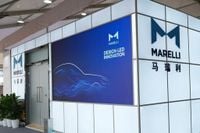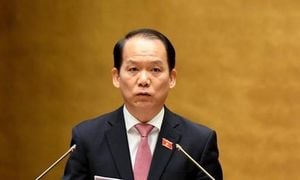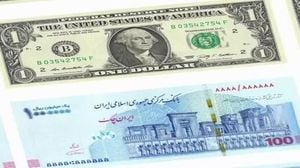Marelli Automotive Lighting USA, a key player in the global automotive parts industry, has filed for Chapter 11 bankruptcy protection in the United States as of June 11, 2025. The company is grappling with approximately $4.9 billion in funded debt and aims to execute a prearranged restructuring plan backed by 80% of its senior lenders and supported by $1.1 billion in new debtor-in-possession (DIP) financing.
The filing, overseen by Judge Brendan Shannon in the US Bankruptcy Court for the District of Delaware, follows a series of financial challenges that have plagued Marelli since the onset of the COVID-19 pandemic. CEO David Slump cited ongoing liquidity pressures, high fixed costs, and underperforming contracts related to the electric vehicle transition as key factors necessitating this restructuring.
Marelli’s roots trace back to Japan, where its parent company, Marelli Holdings, is headquartered. The global company operates through a complex network of subsidiaries spanning Asia, Europe, North and South America, with significant manufacturing and R&D facilities supporting its operations in 25 countries. The US headquarters, located in Southfield, Michigan, occupies a 160,000-square-foot facility leased in 2020.
The company’s debt profile includes a $350 million emergency loan facility governed under Japanese law, provided by the Development Bank of Japan and Mizuho Bank, and a $4.55 billion senior loan facility split between Japanese commercial banks and an ad hoc group of non-Japanese lenders. Notably, any major decisions under this loan require a supermajority approval of at least 66.67% of lenders by principal amount, a threshold that complicated earlier restructuring efforts.
Marelli’s financial woes began during the pandemic when global automotive production plummeted, forcing the suspension of operations at most of its plants and a workforce reduction of about 18,600 employees. Despite securing a $1.2 billion liquidity infusion in 2020, the company struggled under a then $9.5 billion debt load. Subsequent attempts at out-of-court restructuring in Japan in 2022 failed to gain unanimous creditor support, prompting Marelli to enter civil rehabilitation proceedings backed by 95% of its lenders.
However, the company’s challenges deepened with rising inflation, surging material costs, and declining customer orders in 2023 and 2024. The anticipated boom in electric vehicle contracts did not materialize as consumer interest waned in 2024, leaving Marelli with excess inventory and diminished demand. By mid-2024, cash flow became critically strained despite generating $10 billion in revenue that year.
Efforts to secure new capital resulted in over $750 million from customers through deferred payments and order advances, yet external financing remained elusive due to investor caution and Marelli’s complex international structure. Negotiations with senior lenders stalled because of the supermajority consent requirement, leaving the company with dwindling liquidity into early 2025.
The breakthrough came with a restructuring support agreement (RSA) signed by around 80% of Marelli’s senior lenders, enabling the Chapter 11 filing. This deal includes $1.1 billion in new-money DIP financing from members of the ad hoc lender group. The restructuring plan proposes full repayment of the $350 million emergency loan, an 11% cash payout to Japanese lenders on their senior loan claims, and full payment of all general unsecured claims. A portion of the DIP financing will convert into 100% equity of the reorganized company.
Industry observers note that the restructuring will also see a change in ownership. Strategic Value Partners LLC (SVP), a London-based global investment firm led by Victor Khosla, is poised to become Marelli’s effective new owner after leading the creditor-backed restructuring. SVP is part of a consortium including Deutsche Bank AG, Mizuho Financial Group Inc., MBK Partners Ltd. of Seoul, and Fortress Investment Group LLC. This transition follows the original creation of Marelli in 2019 by private equity firm KKR, which merged its Calsonic Kansei and Magneti Marelli units.
KKR acquired Nissan-backed Calsonic Kansei for $4.5 billion in 2017 and Magneti Marelli from Fiat Chrysler Automotive for $6.5 billion in 2019. The merger formed Marelli Holdings, which has since faced ongoing financial strain amid the automotive sector’s shift toward electrification and automation. Marelli supplies components to major automakers such as Nissan Motor Co. and Stellantis NV, producing lighting systems, air conditioning units, electric motors, suspensions, and other parts.
CEO David Slump emphasized the company’s commitment to continuity throughout the Chapter 11 process, stating, “Critically, this prearranged restructuring will assure Marelli’s 46,000 employees and all customers, vendors, suppliers, and business partners that ordinary course operations will continue uninterrupted.” The company has filed customary motions to ensure uninterrupted payment of employee wages and maintenance of essential customer programs, anticipating court approval to uphold commitments to stakeholders.
Tariffs imposed globally have also weighed heavily on Marelli’s import-export focused business, exacerbating liquidity challenges. Slump noted that in March 2025, the liquidity position worsened due to macroeconomic headwinds associated with these tariffs. Despite these pressures, Marelli remains focused on innovation and investment in advanced automotive technologies, aiming to shape the future of mobility and maintain its reputation for delivering cutting-edge vehicle components.
The bankruptcy filing also resolves a longstanding impasse between Japanese lenders and the ad hoc group of senior lenders, which had previously blocked restructuring progress. Mizuho Financial Group, a major Japanese lender, confirmed it has extended approximately $1.64 billion in lending to Marelli and expects minimal impact on its earnings following the restructuring.
Automaker Nissan expressed support for Marelli’s efforts, acknowledging the company’s critical role in the supply chain and pledging to coordinate with other customers to prevent disruption. This reassurance comes amid broader industry turbulence, as global automotive production faces softness, geopolitical uncertainty, and the ongoing transition to electric vehicles.
Looking ahead, Marelli’s restructuring plan includes a 45-day “go-shop” period allowing other potential bidders to submit offers for the company. This process is designed to maximize value for creditors and stakeholders before finalizing ownership transfer to SVP and the creditor consortium.
In sum, Marelli’s Chapter 11 filing marks a pivotal moment for the Japanese automotive supplier as it seeks to stabilize its finances, streamline operations, and position itself for growth in a rapidly evolving industry. The combination of a significant debt reduction, new capital infusion, and ownership restructuring aims to provide the company with the liquidity and strategic flexibility needed to navigate the challenges ahead.





